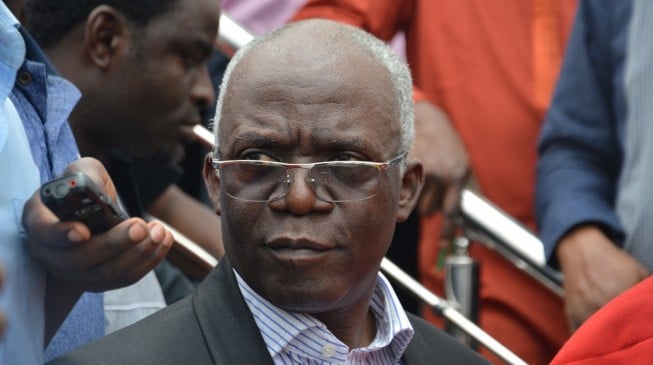
Femi Falana, human rights lawyer, says a federal high court never ruled that the national assembly had power to increase estimates of the appropriation act.
He was reacting to a claim by the house of representatives that “the federal high court has ruled that the national assembly has the power to increase or review upward the budget estimates laid before it by the executive”.
Last week, the senate and the house issued statements flaying Babatunde Fashola, minister of works, power and housing, for saying that the national assembly introduced new projects into the 2017 budget.
The minister was also reported to have said that the legislature indiscriminately reduced the budgetary allocations of some projects, and that a judicial remedy might be sought to determine if the national assembly had the power to increase budget estimates.
In response, the national assembly explained it reduced the budgetary allocations of some projects for the sake of prudence.
In a statement issued on Tuesday, Falana said a court never ruled that the legislature could upwardly review the budget.
“Sometime in 2014, I had cause to challenge the extent of the oversight powers of the national assembly to rewrite the appropriation bill or increase the budget estimates presented to it by the president. (See Suit No FHC/ABJ/CS/295/2014: Femi Falana v the president and three Ors),” he said.
“In dismissing the case the respected learned trial judge, the Honourable Justice G O Kolawole questioned my locus standi to institute the action after he had described me as ‘a renowned human rights crusader’ and acknowledged my humble contributions to ‘the development of human rights jurisprudence in Nigeria’. In justifying the dismissal of the suit his lordship said that the reliefs sought in the case qualified me to be described as a ‘meddlesome interloper’.
“No doubt, the learned trial judge said that the national assembly is not a rubber stamp parliament. The incontestable statement has since been twisted to give the very erroneous impression that the power of the national assembly to increase the budget has been judicially recognised. With respect, the summary of the decision of the court by the national assembly is grossly misleading.
“In the entire 22-page judgment the learned trial judge never said that the national assembly has the power to increase any budget proposal submitted to it by the president. On the contrary, the federal high court made it categorically clear that the national assembly lacks the legislative powers to prepare ‘budget estimates’ for the president or ‘disregard the budget proposals laid before it and substitute it with its own estimates’.
“Even though I have taken the legal battle over the dismissal of the case to the court of appeal, I wish to state, without any fear of contradiction, that the learned trial judge concurred with my submission that the constitution has not vested the national assembly with powers to increase the budget.”
Comments
Post a Comment